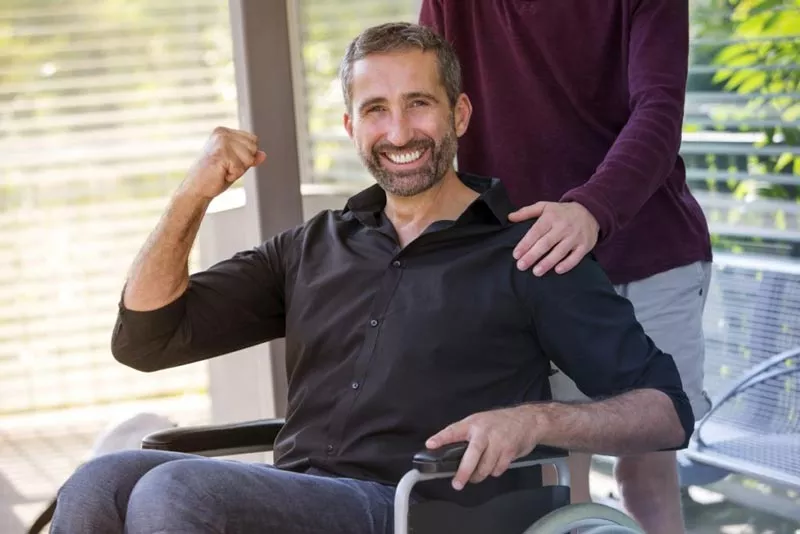One of the great things about having a personal injury lawyer in Houston or your hometown is their willingness to represent you on a contingency—no fee unless you win—basis. However, this does mean that your attorney needs to carefully evaluate whether or not to take your case.
If you’ve been injured in a car accident or another traumatic event, you may be entitled to compensation but the legal complexities of your unique situation will be factored into the decision to pursue a claim. A fair and informed evaluation by a personal injury lawyer will protect you from further costs and future disappointment.
What Is a Personal Injury Lawyer?
An attorney who deals with personal injury cases may be known as a PI Lawyer. They focus on representing those injured in accidents almost exclusively. They are usually paid a percentage of the settlement or award the accident victim receives, which means they share the financial risk of pursuing the case.
7 Reasons Why a Personal Injury Lawyer Will Not Take Your Case
- The Specifics of Your Case
- State Specific Liability Laws
- The Complexity Level of the Case
- The Amount of Recoverable Damages
- The Risk vs Reward
- A Conflict of Interest
- The Statute of Limitations
Seven Reasons Why a Lawyer Won’t Take Your Case
A free consultation will help answer the question “Do I have a personal injury case,” but if the answer is no, these common reasons will help you understand why the attorney chooses not to pursue your claim.
1. The Specifics of Your Case
When choosing to represent accident victims, lawyers evaluate the details of the accident to determine if it meets the basic requirements which establish liability. In order for personal injury cases to be eligible for compensation, the following must be established:
- Duty. The other party or driver must have a duty to you. In the case of a car accident, their duty is to operate their vehicle in a safe, attentive manner and to obey the rules of the highway.
- Breach. The other person must have failed in that duty. There needs to be evidence to show that their behavior was reckless, unreasonable, or that they violated traffic laws.
- Cause. Their breach of duty must have directly caused your injuries or damages. If the link between their actions and the resulting impact on you is unclear, then it will be difficult to prove it was the cause.
- Harm. You must have been harmed by the causative breach of duty. If you didn’t sustain injuries or damages that can be documented, or if you have pre-existing conditions even though the other person may be at fault, you may not be eligible for compensation.
If one or more of these elements of liability is unclear, the likelihood of a large settlement is lowered and the costs will be higher. In these examples, from slip and fall or motor vehicle accidents, what might seem like duty, breach, cause, and harm are, in fact, cases where it would be difficult to prove liability:
You slip and fall on a wet floor at a business. The attorney will need to show that a store employee was aware of the wet conditions or had a reasonable amount of time to become aware of them before the business becomes liable. Even if they were aware, if they posted a sign to warn you, they may have fulfilled their duty.
Another driver hydroplanes on black ice and rear-ends your vehicle. Because the driver was not able to see the hazard, as long as they were driving at a responsible rate of speed for the conditions, they may not be liable for your whiplash injury or the associated pain and suffering. If there was no breach of duty, you must each bear your own expenses.
2. State Specific Liability Laws
States have specific laws which govern personal injury awards, often on the basis of contributory or comparative negligence. This means that they cap or otherwise limit financial liability based on who is determined to be at fault.
Contributory Negligence
States which follow this rule prevent the recovery of damages if you bear any percentage of the fault for the accident. If you are found to be even 1% negligent, there will be no award in court, so there is also little chance for injury claim lawyers to reach a settlement with the insurance company. Fortunately, Texas no longer allows this harsh rule, but your own negligence could bar recovery if you are found to bear more than 50% liability.
Comparative Negligence
States following the comparative rule will allow recovery of damages as long as you are found to be less than 50% negligent. However, the amount of your award will be reduced by the percentage of your negligence. Who is likely to be found at fault and by what percentage will be important in the decision to take your case.
No Fault
In a no fault state, each driver’s insurance covers their damages, no matter who was at fault for the accident. Only in extraordinary circumstances of negligent action would the other driver be liable for your injuries. A PI attorney will not be likely to take an auto accident case in a no fault state. Fortunately, Texas is not a “no fault” state, but if you are a Texas resident injured in another state you should make sure this law does not apply to your accident.
3. The Complexity Level of the Case
Part of your initial consultation will allow the lawyer to determine the complexity level of your personal injury case. The more complex the situation, the more time and expense the law firm will need to invest before receiving a share of the settlement.
When the issue is complex, there is a greater opportunity for the opposing side to delay, defend against, or obstruct the proceedings. A simple case of clear liability with visible injuries or damages is always easier to win, and the attorney wants to be confident that he or she will be able to help you with a winning outcome.
4. The Amount of Recoverable Damages
A personal injury lawyer must also consider the ability of the other party to pay full compensation for your injuries. As the saying goes, you can’t get blood from a turnip. There are a number of factors that might limit the amount of recoverable damages to such an extent that there is little point in pursuing the case.
Insurance Policy Limits
When your attorney negotiates with the insurance lawyer, the amount of the policy is likely the upper limit on the potential settlement amount. If the amount of compensation needed is high and the policy limit is low, taking your case becomes a lose/lose proposition. Additional legal muscle may not always change the unfortunate mismatch of need versus available funds.
Possible Bankruptcy Protection
Collecting full and fair compensation directly from an individual is very difficult because, in many situations, they have the option to file bankruptcy and discharge their debt to you, even after you win your case. An award on paper means little if the other party has no means to pay the debt or can walk away from it, leaving both you and your attorney with nothing for your efforts.
Hospital or Other Liens
If you have hefty hospital bills resulting from your accident, the hospital might be granted a lien against any settlement or award. Those bills must be paid first before your other expenses and the lawyer’s compensation. If these liens will consume all or most of any possible compensation, it won’t leave anything for you or your attorney. An experienced person injury attorney will often be successful in negotiating the lien amounts so that you can receive additional money.
5. The Risk vs. the Reward (Return on Investment)
Considering the factors above, the attorney needs to determine if the reward justifies the risk. They must weigh the cost of pursuing your case against the possible reward for both of you. Sometimes the answer is immediately obvious, but most situations require more in-depth analysis.
Low Risk/High Reward
This is an ideal scenario for both of you because you are very likely to win your case and the rewards will be enough to fully compensate you for your injuries and the attorney for their work. Almost any personal injury attorney would take your case.
High Risk/High Reward
If the potential reward is very high, a lawyer may be more comfortable with a higher risk of losing in court. They may decide to take the case and advise you of the risks because both of you stand to benefit greatly if you are successful. Other, less assertive law firms may still decline your case, based on the possibility of no return, so seeking another opinion might be beneficial.
Low Risk/Low Reward
Sometimes a case is very straightforward and the other party is clearly liable, but there is very little possibility of a large settlement. Perhaps your injuries are not very severe, or other factors limit the ability of the other party to pay just compensation. Of course, there are attorneys who will take any case, but others may advise you to proceed on your own when the risk and rewards are low.
6. A Conflict of Interest
A conflict of interest exists when the attorney or their law firm has represented the other party in the past. This might put the PI lawyer in a situation where they have an unfair advantage or disadvantage based on a past relationship or involvement in a case.
There might be other personal moral or ethical reasons an individual attorney is uncomfortable taking your case. Their professional duty is to decline if they have any concerns about their ability to offer you fair and unbiased representation. They may refer you to a colleague who has no conflict.
7. The Statute of Limitations
The statute of limitations is a time limit on your ability to file a case in court after you have been injured. Depending on the state and the type of claim, 2-4 years is a common timespan. In Texas, most negligence cases need to be brought within 2 years from the date of the accident. Insurance companies may have even shorter time limits for you to file a claim—often as little as one year.
Once these deadlines have passed, there is likely little that an attorney can do to help you win your case. This is one reason it is so important to contact a lawyer as soon as possible following an accident which results in serious injury. It is better to get legal advice early and hear that you do not have a case than to find out when it is too late to file that you could have received the compensation you deserve.
Charting a Path Forward
As you can see, some of the factors involved are hard to change, but some depend on the individual law firm you choose to work with. The right advice isn’t always found by searching for a personal injury lawyer near me. If you are unsure about the merits of your case, a second opinion is sometimes the right one.
At Johnson Garcia LLP, we genuinely want to help you recover from your injuries and restore your life. While sometimes the best choice might be to focus on healing and avoid a lawsuit, scheduling a free consultation is the only way to know for sure.
With our no-fee-unless-you-win policy, you get clear answers free of charge. There is no reason keep worrying and wondering. When you need a personal injury lawyer in Houston, we are standing by to help you make the right decision for the right reasons.




